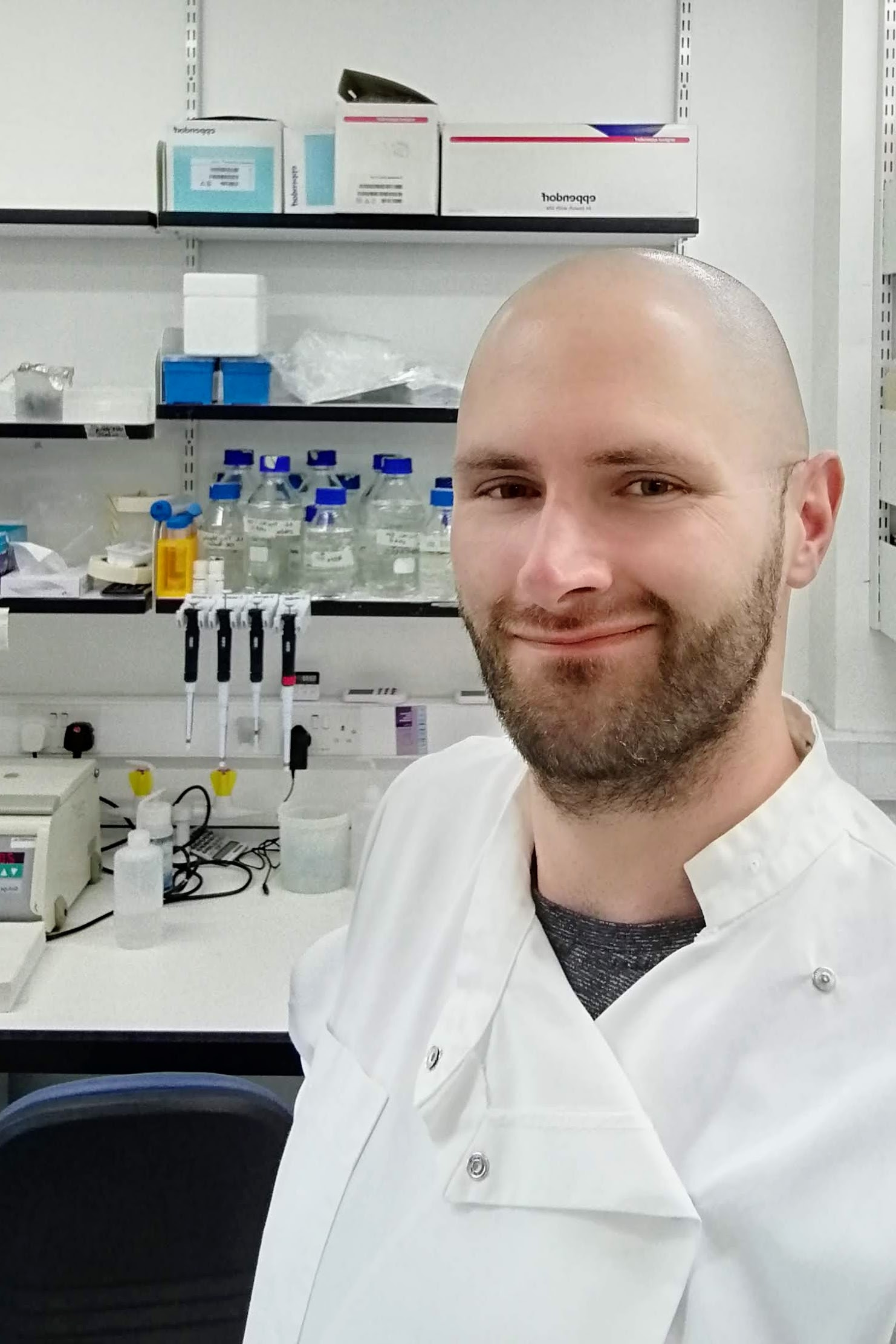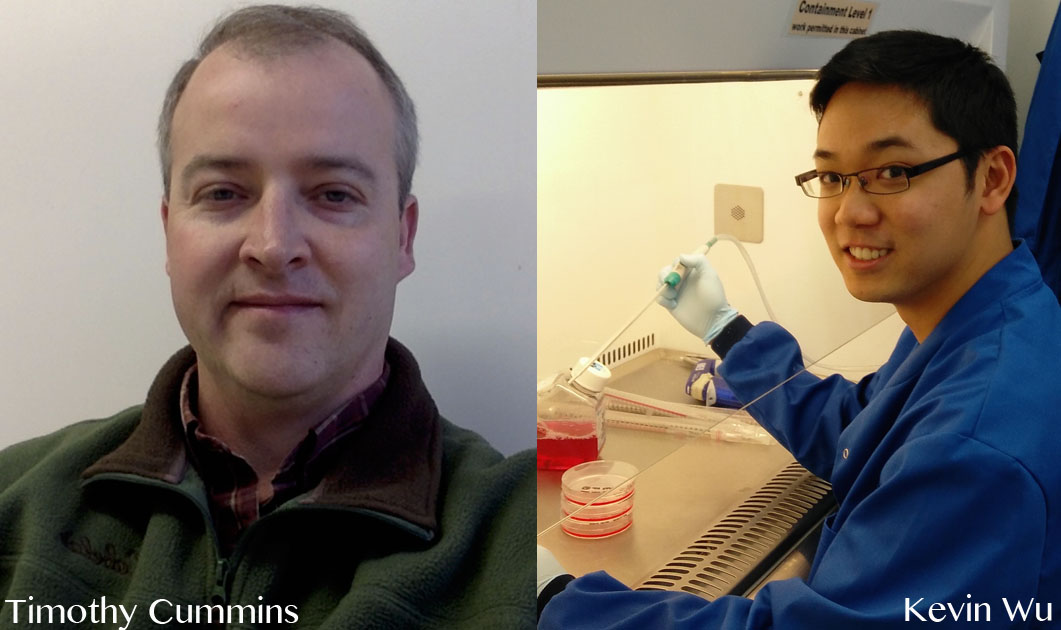The Sapkota lab developed the Affinity-directed PROtein Missile (AdPROM) system for targeted degradation of endogenous proteins inside cells. In principle, by deploying binders of specific proteins attached to destruction signals as “protein missiles”, any intracellular protein can be destroyed rapidly.
…moreNews
Greg Findlay and Francisco Bustos, a postdoctoral researcher in Greg’s group, were recently awarded a £20,000 Tenovus Scotland Research Grant to engineer an RNF12 E3 ligase substrate degrader as a therapeutic strategy in Tonne-Kalscheuer Syndrome (TOKAS) intellectual disability.
…moreLuke Fulcher, who has just completed his PhD work in Gopal Sapkota’s lab, has been awarded the prestigious University of Dundee School of Life Sciences Howard Elder Prize for 2019.
…more
In MRC PPU we are extremely proud that in 2019, a total of 13 PhD students and 1 MSc student defended their theses, and everyone passed with flying colours! As part of the defence, each student gave a 45-minute talk describing their PhD research, to packed lecture rooms.
…moreThe concerted action of several protein kinases helps orchestrate the error-free transition through a mammalian cell division cycle.
…moreKristin Balk, who has been undertaking research in Miratul Muqit’s lab funded by a J Macdonald Menzies Charitable Trust Prize Studentship, has successfully defended her PhD. During her studies Kristin has developed improved methods to study PINK1 signalling in cell lines and applied this to uncover a role for mitochondrial E3 ligases in the generation of Phospho-ubiquitin.
…moreSven Lange, a PhD student in the MRC PPU has won The FEBS Journal Poster Prize at "Pseudoenzymes 2018: from molecular mechanism to cell biology" which was held on the island of Sardinia from May 16-19 2018.
…moreThe CK1 family of serine/threonine protein kinases were one of the first kinases to be discovered some 50 years ago, principally because of their incessant ability to phosphorylate the milk protein casein in the test tube.
…moreThe Wnt signalling pathway plays fundamental roles in shaping developing embryos and controlling cell fate in adults. Mutations that cause slight alterations in Wnt signalling are associated with developmental defects as well as a myriad of diseases, such as cancer.
…more










